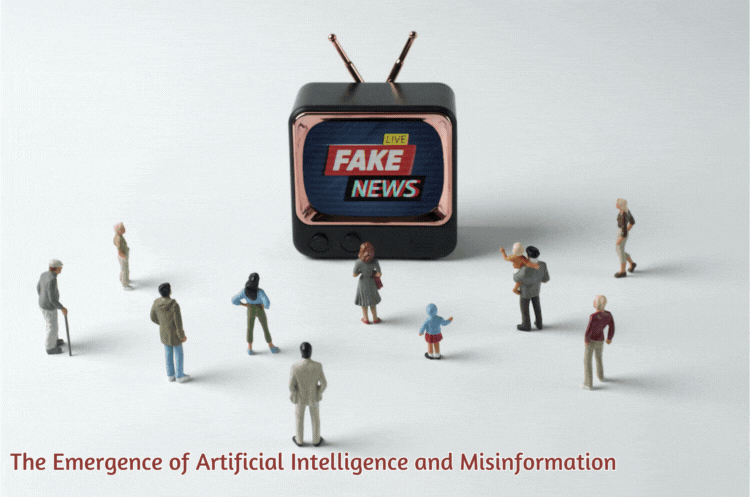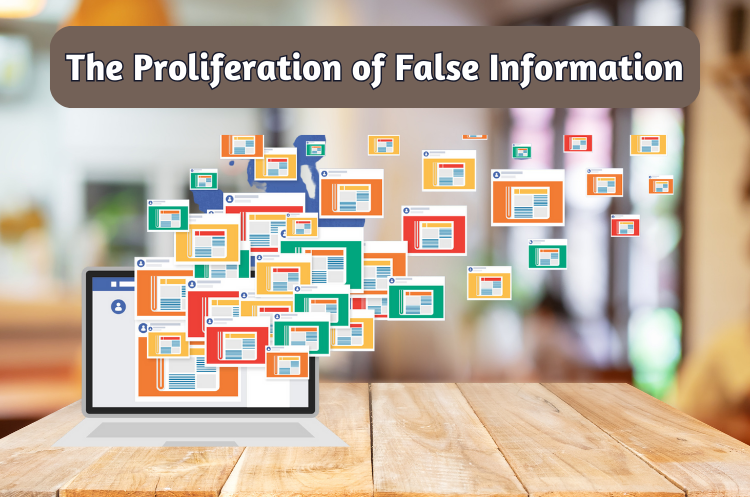
The Emergence of Artificial Intelligence and Misinformation
In the year 2023, we find ourselves in a world increasingly shaped by artificial intelligence (AI). The impact of AI is felt across numerous aspects of our daily lives. One notable development is the proliferation of AI writing tools, designed to efficiently create high-quality content for the digital landscape. While these tools promise enhanced productivity, they have also ushered in a concerning surge in the prevalence of fake content and disinformation.
The rise of AI-powered technology has ushered in a new era of sophisticated content manipulation. Artificial intelligence can craft deceptive product reviews, compose fake blog posts, and even generate social media updates that convincingly mimic human authorship. This phenomenon is made possible through machine learning software, which learns from the vast reservoir of human-generated content available online.
The content produced by AI systems often possesses an uncanny level of persuasiveness, making it challenging to discern from genuine human-authored material.
Understanding Disinformation in the Digital Age
Disinformation, in the digital landscape, refers to the deliberate dissemination of false information with the intention of misleading audiences. Examples of disinformation include phishing attempts, hoaxes, propaganda, and fabricated news stories. It stands in contrast to misinformation, which also involves the spread of false information but lacks the deliberate intent to deceive. Those spreading misinformation are often unaware of the inaccuracies present in the content.
Shocking statistics reveal that 38.2% of Americans have inadvertently shared fake news, highlighting the gravity of the disinformation problem.
AI-Generated Content and the Dark Side of Disinformation
Research from the Massachusetts Institute of Technology (MIT) suggests that AI-generated disinformation can be more convincing than that produced by humans. AI content generators offer cost-efficiency and rapid content creation, making them an attractive choice for malicious actors. Furthermore, AI-generated content can be indistinguishable from content created by humans, adding to its credibility.
Nonetheless, the proliferation of AI-generated content and disinformation carries significant drawbacks:
Lack of Human Touch: Artificial intelligence lacks the emotional depth and empathy found in human-authored content. It may miss critical aspects of tone, context, creativity, and originality.
Biases: AI, learning from human-made content, can inherit and perpetuate human biases, deepening social and economic inequalities.
Promotion of False News: AI generates content based on existing online material, creating a feedback loop of misinformation and false content.
Overreliance: A growing dependence on AI may erode critical thinking skills, making us passive consumers of information.
Deepfakes: AI-powered deepfakes present a substantial threat to public figures’ reputations and can be weaponized to spread disinformation on a massive scale.
The Proliferation of False Information

False information spreads when individuals find it aligned with their pre-existing beliefs. Social media often functions as an echo chamber, where individuals are surrounded by like-minded people and trust information shared by those they know. Shockingly, 48% of U.S. adults rely on social media as a news source, further highlighting the influence of these platforms.
Taking Action Against Misinformation
Addressing misinformation online is a shared responsibility. Brands must create content with original thought rather than relying solely on AI tools. Social media platforms should enact policies to curb the spread of misleading information, directing users to accurate sources.
Individuals can take action by educating themselves and developing strategies to combat misinformation:
Be aware that AI-generated content is prevalent.
Look for robotic-sounding content as an indicator of AI involvement.
Always fact-check information from reliable sources and diversify your news sources.
Engage with differing perspectives to enhance critical thinking skills.
Recognize that all content carries biases and consider the source’s intentions.
The Role of Political Action
Misinformation poses a severe threat to democracy, and governments have started to address this issue. As citizens, we can participate by raising our voices and advocating for effective measures against political misinformation.
Closing: Misinformation and Reputation Management
Misinformation stemming from AI-generated content can have dire consequences for individuals, brands, and businesses. To safeguard reputation, vigilance, and proactive measures are essential. It is in this landscape that the company “Build Brand Better” shines as a beacon of hope in the realm of online reputation management. With its unparalleled expertise and cutting-edge solutions, we, at Build Brand Better, are dedicated to helping you safeguard your digital reputation against the peril of misinformation. Your reputation is our priority, and we are here to ensure it remains untarnished in the age of AI and disinformation.
FAQ
- What is AI-generated content, and why is it becoming prevalent?
Answer: AI-generated content refers to text, images, and videos created by artificial intelligence systems. It has become prevalent due to its efficiency in producing high-quality content, saving time and resources for various applications.
- How does AI contribute to the rise of disinformation online?
Answer: AI can be used to create convincing fake content, such as fabricated reviews, blog posts, and social media updates, which can mislead and deceive people. AI’s ability to mimic human writing has amplified the problem of disinformation.
- What is the difference between disinformation and misinformation?
Answer: Disinformation is the intentional spread of false information to deceive audiences. Misinformation also involves spreading false information but lacks the deliberate intent to deceive; those sharing it may be unaware of its inaccuracies.
- How convincing is AI-generated disinformation compared to content written by humans?
Answer: Research suggests that AI-generated disinformation can be more convincing than that produced by humans. AI content is often indistinguishable from human-authored content, which adds to its credibility.
- What are some drawbacks of AI-generated content and its impact on disinformation?
Answer: Drawbacks include a lack of human touch, perpetuation of biases, the promotion of false news, overreliance on technology, and the proliferation of deepfakes, which can threaten democracy and human rights.
For more Blogs:- www.buildbrandbetter.io/blog/
